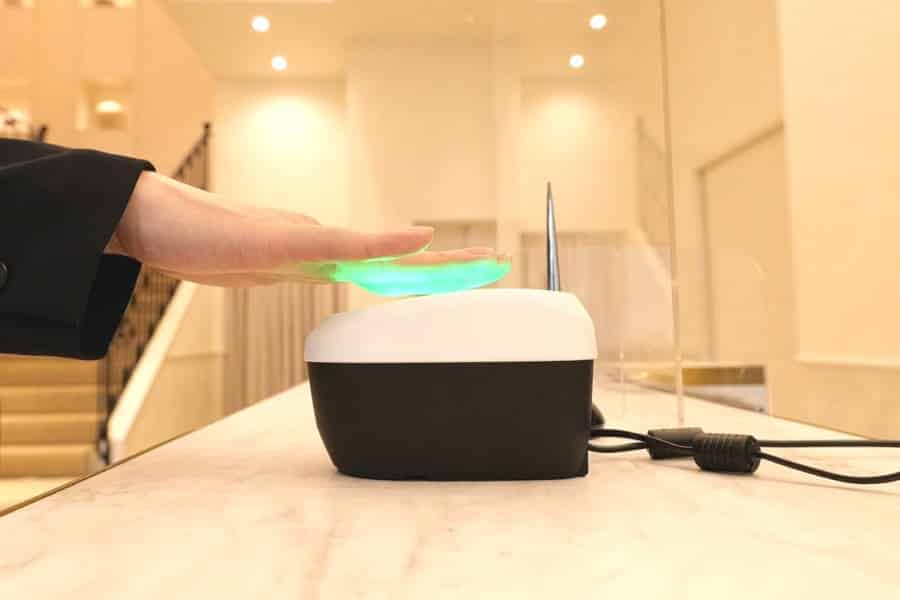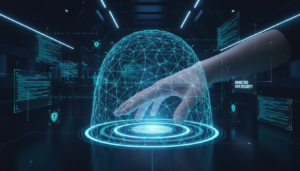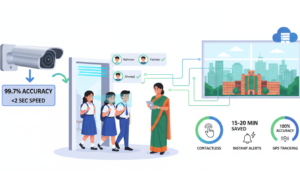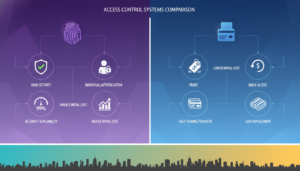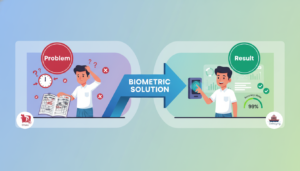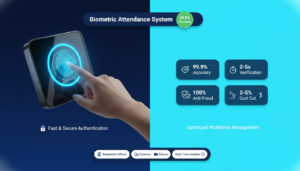Hotel Check In Biometric Devices are changing how hotels manage check-ins. These tools use unique physical traits, like fingerprints or facial recognition, to speed up the process.
Travelers today seek convenience and speed. Long lines at the front desk can be frustrating. Hotel chek in biometric devices offers a solution. It allows guests to check in quickly and securely. Hotels benefit too. They can enhance security and streamline operations. The use of biometric devices also helps reduce contact, which is important in today’s world.
As technology advances, more hotels are adopting these systems. This shift makes the travel experience smoother for everyone involved. Understanding these devices can help you choose the right hotel for your next trip. Let’s explore the world of hotel check-in biometric devices and their advantages.

Credit: www.alibaba.com
What are Biometric Hotel Check-Ins?
Biometric hotel check-ins use advanced technologies like facial recognition, fingerprint scanning, or iris scanning to verify a guest’s identity. This process eliminates the need for traditional room keys or manual verification, offering a faster and more secure check-in experience.
The Rise Of Biometric Technology In Hotels
Biometric technology is changing how hotels operate. It offers a faster and safer way to check in. Guests can now use their fingerprints or facial recognition. This technology improves security and enhances guest experience.
Hotels are embracing hotel check in biometric devices. They aim to provide a seamless and efficient process. As travel becomes more popular, hotels must adapt. Biometric check-ins help meet the needs of modern travelers.
History Of Biometric Use In Hospitality
The use of biometrics in hospitality started slowly. Early attempts focused on security. Hotels used keycards and security codes. These methods were effective but had limitations.
As technology advanced, hotels began to explore biometrics. The first real use came in the early 2000s. Some hotels used fingerprint scanners for staff access. This helped secure sensitive areas.
Over the years, more hotels began to adopt biometric systems. They saw the benefits of improved security and guest convenience. Today, biometrics is a common feature in many hotels.
Current Trends In Biometric Hotel Check-ins
Today, many hotels are installing biometric check-in devices. Guests can check in using their face or fingerprints. This speeds up the process and reduces wait times.
Hotels are also integrating mobile apps. Guests can check in from their phones. This adds convenience and allows for social distancing.
Security remains a top priority. Biometric systems reduce the risk of identity theft. Hotels can verify guests quickly and securely.
More hotels will likely adopt these systems in the future. As travelers seek safe experiences, biometrics will play a key role.
Types Of Hotel Check In Biometric Devices In Hotels
Hotels are adopting new technology for easier check-in. Biometric devices help guests check in faster and safer. Different types of biometric devices are used in hotels today. Each device has its own strengths and uses. Let’s explore some common types.
Fingerprint Recognition Systems
Fingerprint recognition systems are popular in hotels. They scan a guest’s unique fingerprint. This helps verify their identity quickly. Guests just place their finger on a scanner. The system matches the fingerprint with stored data. It is fast and effective.
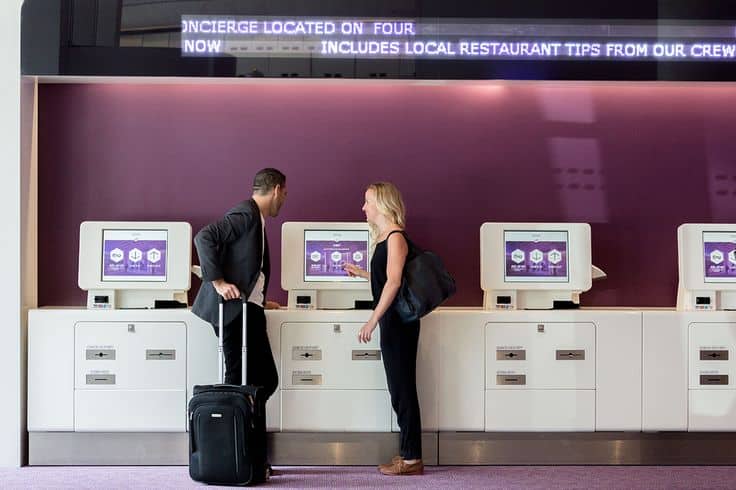
This method improves security. It reduces the risk of identity theft. Many hotels find this system easy to use. Staff can assist guests who may need help. Overall, it streamlines the check-in process.
Facial Recognition Technology
Facial recognition technology is growing in popularity. This system identifies guests by their facial features. Cameras scan the guest’s face when they arrive. The software compares it to stored images. It verifies the guest’s identity almost instantly.
Facial recognition is contactless. This is important for health and safety. Guests appreciate the quick service. Hotels can manage check-ins even during busy times.
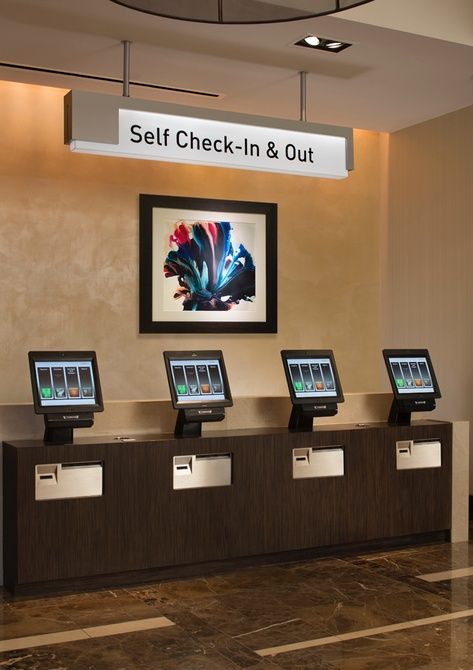
Iris Scanners
Iris scanners are another advanced option. They analyze the unique patterns in a person’s iris. This method is highly accurate. Guests simply look into the scanner. The system recognizes them in seconds.
While less common, iris scanners offer a high level of security. They are also contactless. This makes them suitable for modern hotel environments. Many hotels consider this technology for future upgrades.
Benefits of Hotel Check In Biometric Devices
- Faster and Hassle-Free Check-Ins: Guests can bypass long queues and complete the check-in process within seconds.
- Enhanced Security: Unique biometric data ensures only authorized individuals can access rooms, reducing the risk of unauthorized entry.
- Personalized Guest Experiences: Hotels can use biometric data to tailor services, such as pre-setting room preferences or offering customized recommendations.
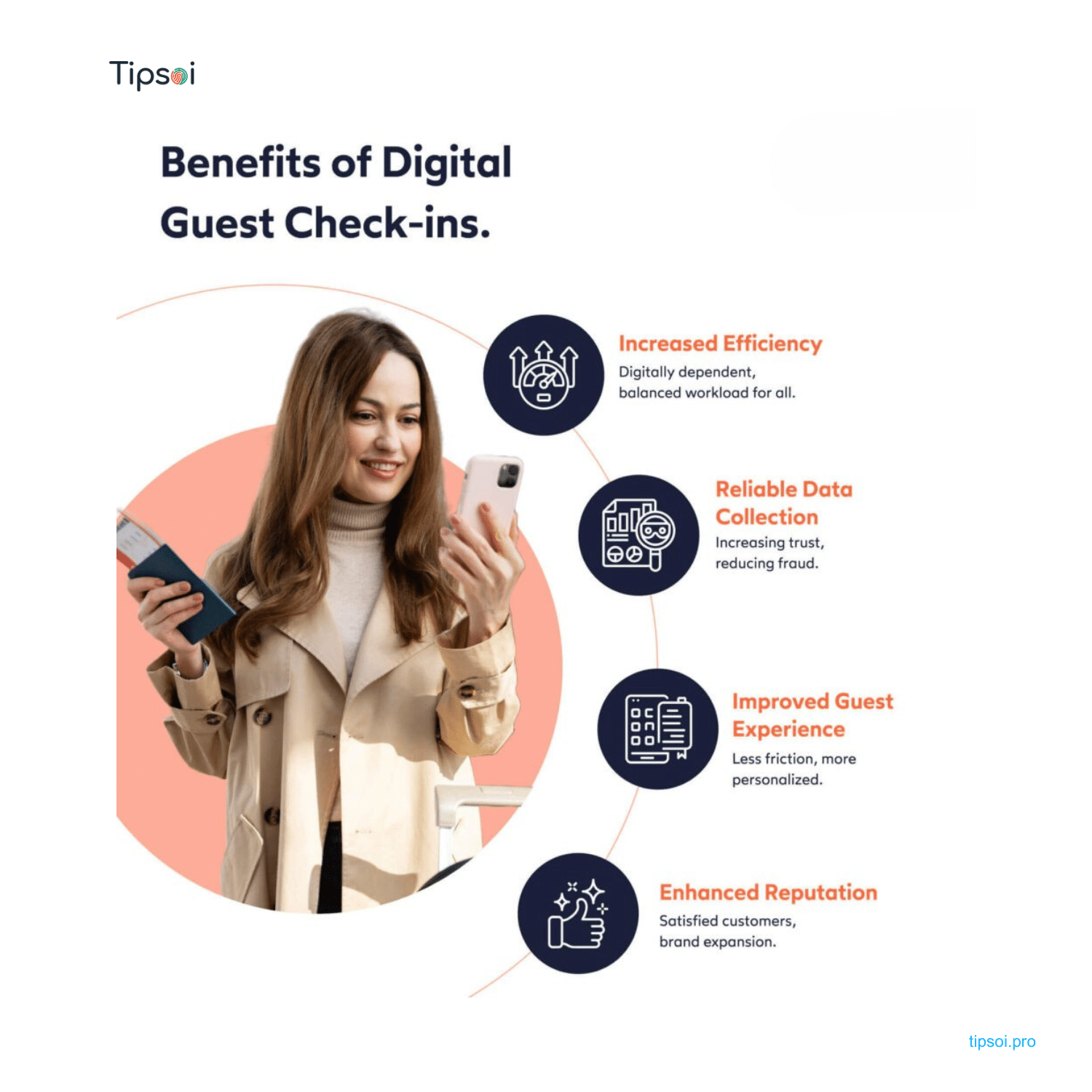
Improving Guest Safety With Biometrics
Biometric technology is changing hotel check-in processes. It helps improve guest safety. This technology uses unique traits like fingerprints and facial recognition. It provides a secure way to identify guests. Let’s explore how biometrics enhances security in hotels.
Enhanced Security Measures
Hotels are now adopting advanced security measures. Biometric devices play a key role. They ensure that only registered guests can access their rooms. Here are some benefits:
- Unique identification: Each guest has unique biometric data.
- Fast check-in: Guests can check in quickly without waiting in line.
- Less paperwork: Reduces the need for physical ID checks.
Reducing The Risk Of Unauthorized Access
Unauthorized access is a major concern for hotels. Biometric systems help reduce this risk significantly. Here’s how they work:
- Guests provide their biometric data at check-in.
- The system verifies the data against hotel records.
- Only verified guests gain access to their rooms.
This process prevents impersonation. It also protects guest privacy and security. Hotels using biometrics report fewer security incidents.
| Benefit | Description |
|---|---|
| Improved Safety | Only authorized guests can enter. |
| Faster Service | Quick check-in and check-out processes. |
| Cost-Effective | Reduces need for staff at front desks. |
Biometric devices are more than just technology. They provide peace of mind. Guests feel safer knowing their information is secure. Hotels gain trust and build stronger relationships with guests.
The Guest Experience And Biometric Check-in
Biometric check-in devices improve the guest experience. They make the process quick and easy. Guests can check in without long waits. This technology uses fingerprints, facial recognition, and other traits. It makes travel smoother and less stressful.
Streamlining The Check-in Process
Biometric check-in saves time. Guests can complete the check-in in seconds. No need for paperwork or ID checks. Here are some benefits:
- Faster check-in times
- No long queues
- Less paperwork
- Reduced need for staff assistance
This technology allows hotels to serve more guests quickly. It also helps staff focus on other services. Guests feel valued with less waiting time.
Personalization Of Guest Services
Biometric check-in offers personalized experiences. Hotels can gather guest data securely. This data helps in many ways:
- Understanding guest preferences
- Customizing room settings
- Offering tailored recommendations
For example, if a guest likes a certain pillow type, hotels can prepare it in advance. It makes guests feel special and appreciated. Personalization enhances satisfaction and loyalty.
| Feature | Benefit |
|---|---|
| Speed | Less waiting time for guests |
| Security | Safer check-in process |
| Convenience | Easy and quick access to rooms |
| Personalization | Services tailored to individual guests |
Privacy Concerns And Biometric Data
Biometric devices in hotels raise important privacy issues. These devices collect unique personal information. This data includes fingerprints, facial recognition, and iris scans. Many guests worry about how this information is stored and used.
Handling Sensitive Information
Hotels must handle biometric data with great care. This data is sensitive and can lead to identity theft. Keeping it safe is crucial. Here are some key points hotels should consider:
- Secure storage: Use encryption methods to protect data.
- Access controls: Limit access to authorized personnel only.
- Data minimization: Collect only what is necessary.
- Regular audits: Check data handling practices frequently.
Guests should know how their data is used. Transparency builds trust. Hotels should inform guests about:
- What data is collected
- How it will be used
- How long it will be stored
Regulations Governing Data Protection
Many laws regulate the handling of biometric data. These laws protect guest privacy. They set strict rules for data collection and storage. Here are some key regulations:
| Regulation | Description |
|---|---|
| GDPR | Protects personal data in the EU. |
| CCPA | Gives California residents rights over their data. |
| PIPEDA | Regulates data in Canada. |
Hotels must comply with these laws. Non-compliance can lead to fines. It can also damage their reputation. Understanding these regulations is vital for hotel management.
Integrating Biometrics With Hotel Management Systems
Biometric devices are changing hotel check-in processes. These systems use unique traits like fingerprints or facial recognition. They make check-in faster and more secure. Integrating biometrics with hotel management systems can enhance guest experience. It simplifies operations for hotel staff.
Core Web
To complement the seamless experience of biometric check-ins, hotels and websites must ensure their platforms are fast, responsive, and user-friendly. Here’s how Core Web Vitals play a role:
Fast Loading Times: Pages should load within 2.5 seconds to provide a smooth browsing experience. Compress images and use lazy loading for visuals like biometric device photos.
Responsive Design: Ensure the website adapts perfectly to mobile devices, as most travelers search for hotel information on their phones.
Visual Stability: Avoid layout shifts by using defined dimensions for images and videos, ensuring a stable viewing experience.
Software Compatibility
Choosing the right biometric system is important. It must work well with existing hotel management software. Check these factors:
- Supported operating systems
- Integration APIs
- Update frequency
- Customer support options
Check if your hotel management system can connect with biometric devices. A seamless connection reduces errors and improves efficiency. Compatibility ensures smooth data flow.
Data Synchronization
Data synchronization is crucial for effective operations. It keeps guest information up-to-date across systems. Here are some key points:
- Real-time updates for guest check-in.
- Automated data entry reduces manual work.
- Consistent information across all platforms.
- Enhanced security with encrypted data transfer.
With proper data synchronization, hotels can avoid mistakes. It allows staff to focus on guest service. Overall, it makes hotel management smoother.
Case Studies: Hotels Implementing Biometric Check-ins
Biometric check-ins are changing how hotels operate. These systems use fingerprints or facial recognition. They speed up the check-in process. Many hotels have adopted this technology. Let’s explore some success stories from around the world.
Success Stories From Around The Globe
- In Singapore, a popular hotel chain launched biometric check-ins. Guests scan their fingerprints at kiosks. This reduces wait times and improves guest satisfaction. The hotel reported a 30% increase in positive reviews (Biometric Update).
- Another example is a resort in Dubai. They use facial recognition for check-ins. Guests simply stand in front of a camera. This system works efficiently, even during peak seasons. The resort saw a rise in bookings after implementing this technology (Hotel and Catering).
- A hotel in London started using iris scanning. Guests find this method secure and quick. The hotel noted that the average check-in time dropped by half. This led to happier guests and better online ratings (Asmag).
Lessons Learned And Best Practices
Hotels must ensure privacy and data security. Clear communication about data use is crucial. Inform guests how their information is stored and protected.
Staff training is essential for a smooth process. Employees should understand how the system works. They need to help guests who may have questions.
Feedback from guests helps improve the system. Hotels should ask for opinions after implementation. This can guide future upgrades and enhancements.
Overall, hotels that adopt biometric check-ins see benefits. They improve guest experience and streamline operations. Learning from these examples can help others succeed.

Credit: www.aratek.co
The Future Of Biometric Technology In Hospitality
Biometric technology is changing how hotels operate. This tech offers fast and secure check-in options. Guests can use their fingerprints or facial recognition. It makes the process easier and safer for everyone.
Emerging Biometric Innovations
New biometric innovations are on the rise. Here are some key advancements:
- Facial Recognition: Quick and easy identification.
- Fingerprint Scanners: Secure access with just a touch.
- Iris Scanning: Unique identification for high-security areas.
- Voice Recognition: Identifying guests through voice patterns.
These technologies aim to enhance guest experiences. They also reduce wait times at check-in. Hotels can collect data to improve services. This leads to better customer satisfaction.
Predictions For Industry Adoption
Experts predict rapid adoption of biometric devices in hotels. Here are some key predictions:
| Year | Adoption Rate | Key Drivers |
|---|---|---|
| 2023 | 15% | Increased awareness and technology availability |
| 2025 | 30% | Focus on guest safety and convenience |
| 2030 | 50% | Integration with smart hotel systems |
Hotels will focus on improving guest experiences. Biometric technology will play a big role. This tech will reduce staff workload. Guests will appreciate the smooth check-in process.
The future is bright for biometric technology in hospitality. Hotels that adopt this tech will stand out. They will attract tech-savvy guests and improve loyalty.

Credit: www.freepik.com
Pro Tip for Hotels
Embracing biometric technology not only enhances guest satisfaction but also positions your brand as a leader in hospitality innovation.
Frequently Asked Questions
What Are Biometric Devices For Hotel Check-in?
Biometric devices for hotel check-in include fingerprint scanners, facial recognition systems, iris scanners, and voice recognition technology. These devices enhance security and streamline the check-in process by using unique biological traits for identity verification.
How Do Biometric Check-ins Improve Hotel Security?
Biometric check-ins enhance hotel security by ensuring that only authorized individuals gain access to rooms. This technology minimizes the risk of identity theft and fraudulent activities. Additionally, biometric data is difficult to replicate, making it a robust security measure that protects both guests and hotel assets.
Are Biometric Check-ins User-friendly For Guests?
Yes, biometric check-ins are designed to be user-friendly and efficient. Guests can complete the check-in process quickly without needing physical identification. This convenience appeals to tech-savvy travelers who appreciate seamless experiences and minimal waiting times at the front desk.
What Are The Benefits Of Using Biometrics In Hotels?
The benefits of using biometrics in hotels include increased security, faster check-in, and improved guest satisfaction. It reduces the need for physical keys or cards, which can be lost or stolen. Overall, biometric technology enhances operational efficiency and provides a modern touch to hotel services.
How do biometric hotel check-ins work?
Biometric hotel check-ins use technologies like facial recognition, fingerprint scanning, or iris detection to verify a guest’s identity. Guests provide their biometric data (e.g., a selfie or fingerprint) and ID during registration, which is matched to their booking details for seamless check-in.
Are biometric hotel check-ins secure?
Yes, biometric hotel check-ins are highly secure. They use advanced encryption and liveness detection to prevent fraud. Unlike traditional methods, biometric data is unique to each individual and cannot be easily replicated or stolen.
Which hotels use biometric technology for check-ins?
Major hotel chains like Hilton, Radisson, and Accor have adopted biometric technology for contactless check-ins, offering guests a modern and efficient experience.
Summing It Up
Biometric check-in devices are changing the hotel experience. They make arrival faster and easier. Guests enjoy greater security and convenience. This technology reduces waiting times at the front desk. Hotels can serve more guests efficiently. As this trend grows, expect more hotels to adopt these devices.
Biometric systems are here to stay. They improve guest satisfaction and streamline operations. Embracing this technology benefits both hotels and travelers alike. Staying updated on these advancements is essential for a smooth travel experience.

